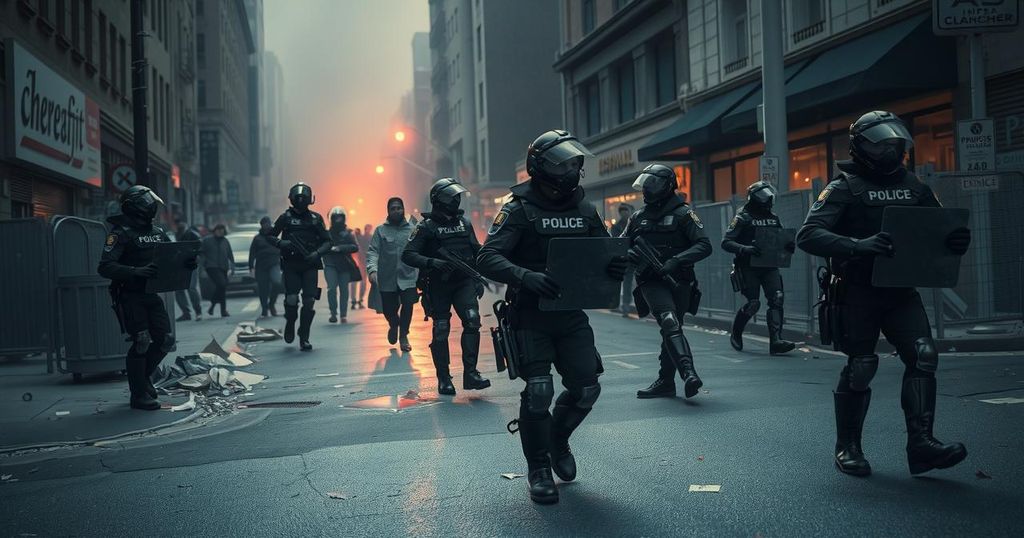President Javier Milei of Argentina intensifies measures against protests following a rally he termed as a potential coup. His government proposed legislation to label certain groups as illegal associations after violent demonstrations against austerity measures. While these measures have led to a budget surplus celebrated internationally, public backlash poses a risk to Milei’s presidency ahead of October elections.
Argentinian President Javier Milei is intensifying measures against anti-government protests, labeling one demonstration as “a kind of coup d’état.” In response, his administration proposed a bill to designate certain groups as “illegal associations.” This initiative follows a violent rally involving pensioners and football fans opposing Milei’s austerity measures.
These austerity measures, including significant subsidy cuts impacting many citizens, have ignited widespread discontent. Nonetheless, this budgetary overhaul resulted in Argentina achieving its first budget surplus in 14 years, garnering support from international financial institutions crucial for the nation’s economic recovery.
Despite this financial reform progress, unrest from the protests poses risks to Milei’s presidency, particularly with legislative elections scheduled for October. The public’s reaction and ongoing protests could significantly influence the political landscape.
In conclusion, President Javier Milei’s actions to curb anti-government protests reflect escalating tensions surrounding his austerity policies. While aiming for fiscal recovery and international support, the potential backlash from these measures could jeopardize his administration’s stability, especially with upcoming elections. Vigilance is essential as Milei navigates these complicated political waters.
Original Source: www.semafor.com






